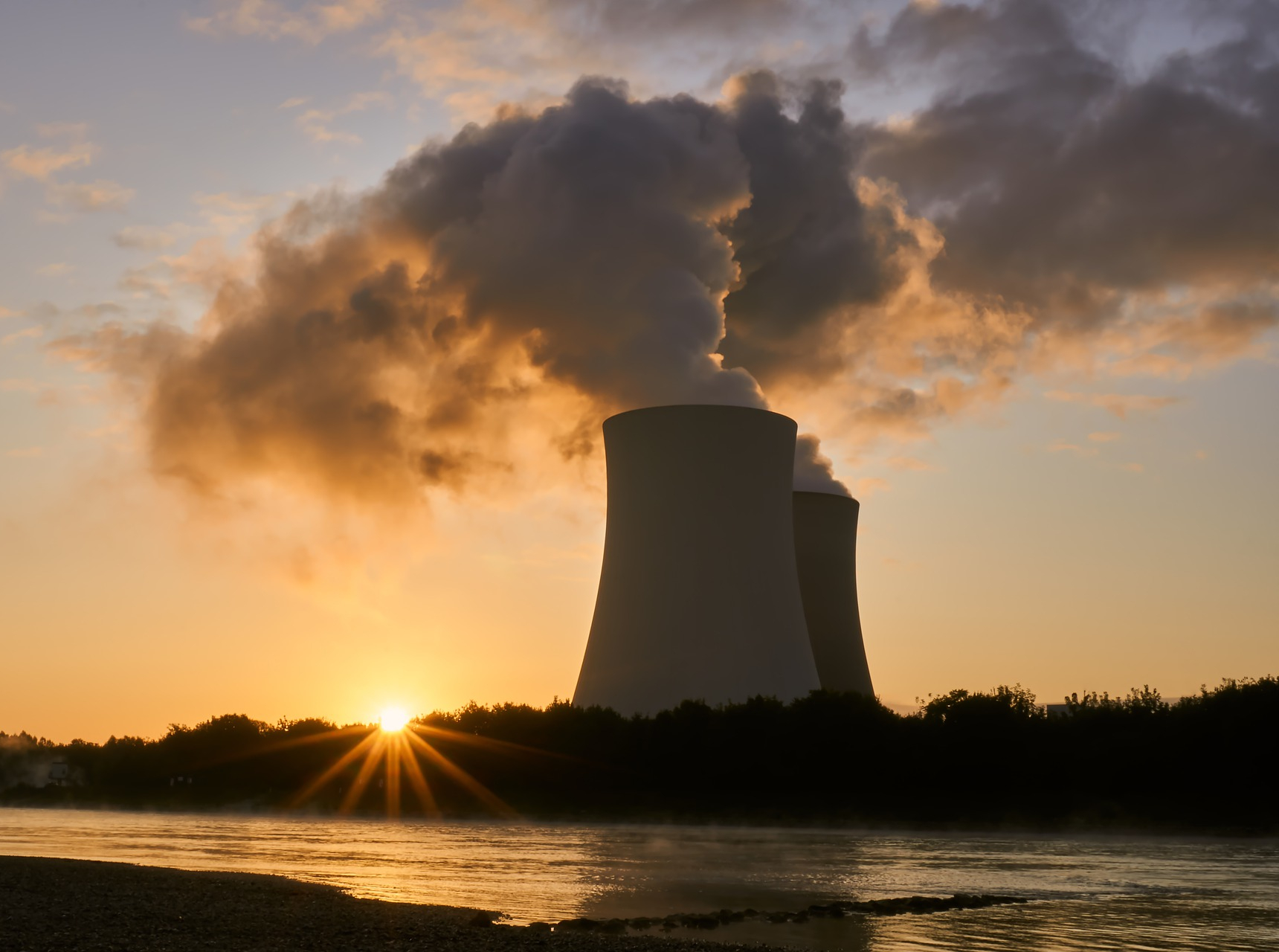Fukushima: 8 years on, what has changed in France?
Fukushima was the most devastating nuclear disaster since Chernobyl. The 1986 disaster led to radical changes in international nuclear governance, but has the Japanese catastrophe had the same effect? This is what the AGORAS project is trying to find out. IMT Atlantique, the IRSN, Mines ParisTech, Orano and SciencesPo are all working on the AGORAS project, which aims to understand the impact of Fukushima on France’s nuclear industry. Stéphanie Tillement, a sociologist at IMT Atlantique explains the results of the project, which is coming to an end after 6 years of research.
Why do we need to know about the consequences of a Japanese nuclear incident in France?
Stéphanie Tillement: Fukushima was not just a shock for Japan. Of course, the event influenced everywhere that uses nuclear energy as an important part of energy production, such as Europe, North America, and Russia; but it also affected less nuclearized countries. Fukushima called into question the safety, security and reliability of nuclear power plants. Groups which are strongly involved in the industry, such as nuclear operators, counter-experts, associations and politicians, were all affected by the event. Therefore, we expected that Fukushima would have a strong impact on nuclear governance. There is also another, more historical, reason; both the Chernobyl and Three Mile Island accidents had an impact on the organization of the nuclear industry. So, Fukushima could be part of this trend.
How did Chernobyl and Three Mile Island impact the industry?
ST: The consequences of nuclear disasters are generally felt 10 to 20 years after the event itself. In France, Chernobyl contributed to the 2006 French Nuclear Safety and Transparency Act, which marked a major change in the nuclear risk governance system. This law notably led to the creation of the French Nuclear Safety Authority, ASN. A few years earlier, the French Radioprotection and Nuclear Safety Institute, IRSN, was created. The 2006 law still regulates the French nuclear industry today. The Three Mile Island disaster caused the industry to question people’s involvement in these complex systems, notably in terms of human error. This led to major changes in human-computer interfaces within nuclear infrastructure, and the understanding of human error mechanisms.
Has the Fukushima accident led to similar changes?
ST: The disaster was in 2011; it’s not even been 10 years since it happened. However, we can already see that Fukushima will probably not have the same affect in France as the other accidents. Rather than criticizing the French system, industry analysis of Fukushima has emphasized the benefits of France’s current mode of governance. Although technical aspects have undergone changes, particularly regarding Complementary Safety Assessments (CSR), the relationships between nuclear operators, the ASN and the IRSN have not changed after Fukushima.
Why has this disaster not considerably affected the French mode of governance?
ST: At first, the French nuclear industry thought that the Fukushima disaster was unlikely to happen in France, as the Japanese power plant was managed in a completely different way. In Japan, several operators share the country’s nuclear power plants. When analyzing crisis management, the post-accident report showed that the operator’s independence was not enforced, and that there was collusion between the government, the regulators and the operators. In France, the Nuclear Safety and Transparency Act strictly regulates relationships between industry operators and assures that each operator has their independence. This is a strength of the French governance model that is recognized internationally. As well as this, French nuclear power plants are managed by only one operator, EDF, which controls 58 identical plants. The governance issues in Japan reassured French operators, as they confirmed that legally enforcing the independence of the regulatory authority was the right thing to do.
How did the anti-nuclear movement respond to this lack of change?
ST: During our investigations into Fukushima, we realized that the accident did not create any new anti-nuclear movements or opinions. Opposition already existed. There is no denying that the event gave these anti-nuclear organizations, collectives and experts some material, but this didn’t radically change their way of campaigning nor their arguments. This again shows how Fukushima did not cause major changes. The debate surrounding the nuclear industry is still structured in the same way as it was before the disaster.
Does that also mean that there have been no political consequences post-Fukushima?
ST: No, and that’s also one of the findings of the AGORAS project. Recent political decisions on nuclear sector strategy have been mainly made according to processes established before the Fukushima accident. For example, the cancellation of the ASTRID project was not due to a radical political change in the nuclear sector, but actually because of economic arguments and a lack of political desire to tackle the subject. Clearly, politicians do not want to tackle these issues, as the decisions they make have an impact in 10, 20, or even 30 years’ time. This just doesn’t work with their terms of office. The political turnover also means that very few politicians know enough about the subject, which raises questions about the government’s ability to get involved in nuclear, and therefore energy politics.
Read on I’MTech: What nuclear risk governance exists in France?
Your work suggests that there has been almost no change in any aspect of nuclear governance
ST: The AGORAS project started by asking the question: Did Fukushima cause a change in governance in the same way as the accidents that preceded it? If we look at it from this perspective, our studies say no, due to all the reasons that I’ve already mentioned. However, we need to put this into context. Many things have changed, just not in the same radical way as they did after Chernobyl or Three Mile Island. Amongst these changes, is the modification of certain technical specifications for infrastructure. For example, one of the reasons why ASN called for EDF to review the welding of their EPR reactors was due to technical developments decided following Fukushima. There have also been changes in crisis management and post-accident management.
How have we changed the way we would manage this type of disaster?
ST: Following Fukushima, a rapid response force for nuclear accidents (FARN) was created in France to manage the emergency phase of an accident. Changes were also made to the measures taken during a crisis, so that the civil security and prefects can act more quickly. The most notable changes have been in the post-accident phase. Historically, accident preparation measures were mainly focused on the emergency phase. As a result, different roles are well-defined in this phase. However, Fukushima showed that managing the after-crisis was also equally as important. What’s unique about a nuclear accident, is that it has extremely long-term consequences. However, in Fukushima, once the emergency phase was over, the organization became less defined. No one knew who was responsible for controlling food consumption, soil contamination, or urban planning. Therefore, the local information commissions (CLIS) have worked with nuclear operators to improve the post-accident phase in particular. But, once again, our research has shown that this work was started before the Fukushima disaster. The accident just accelerated these processes and increased the importance of this issue.
Fukushima took place less than 10 years ago; do you plan on continuing your work and studying the implications of the disaster after 10 and 20 years have passed?
ST: We would particularly like to continue to address other issues and to develop our results further. We have already carried out field research with ASN, IRSN, local information commissions, politicians, associations, and manufacturers such as Framatome or Orano. However, one of the biggest limitations to our work is that we cannot work with EDF, who is a key player in nuclear risk governance. In the future, we want to be able to work with plant operators, so we can study the impact of an accident on their operations. As well as this, politicians’ understanding could also be improved. Understanding politicians’ opinions regarding nuclear governance, and the nuclear strategy decision-making process is a real challenge.





Leave a Reply
Want to join the discussion?Feel free to contribute!